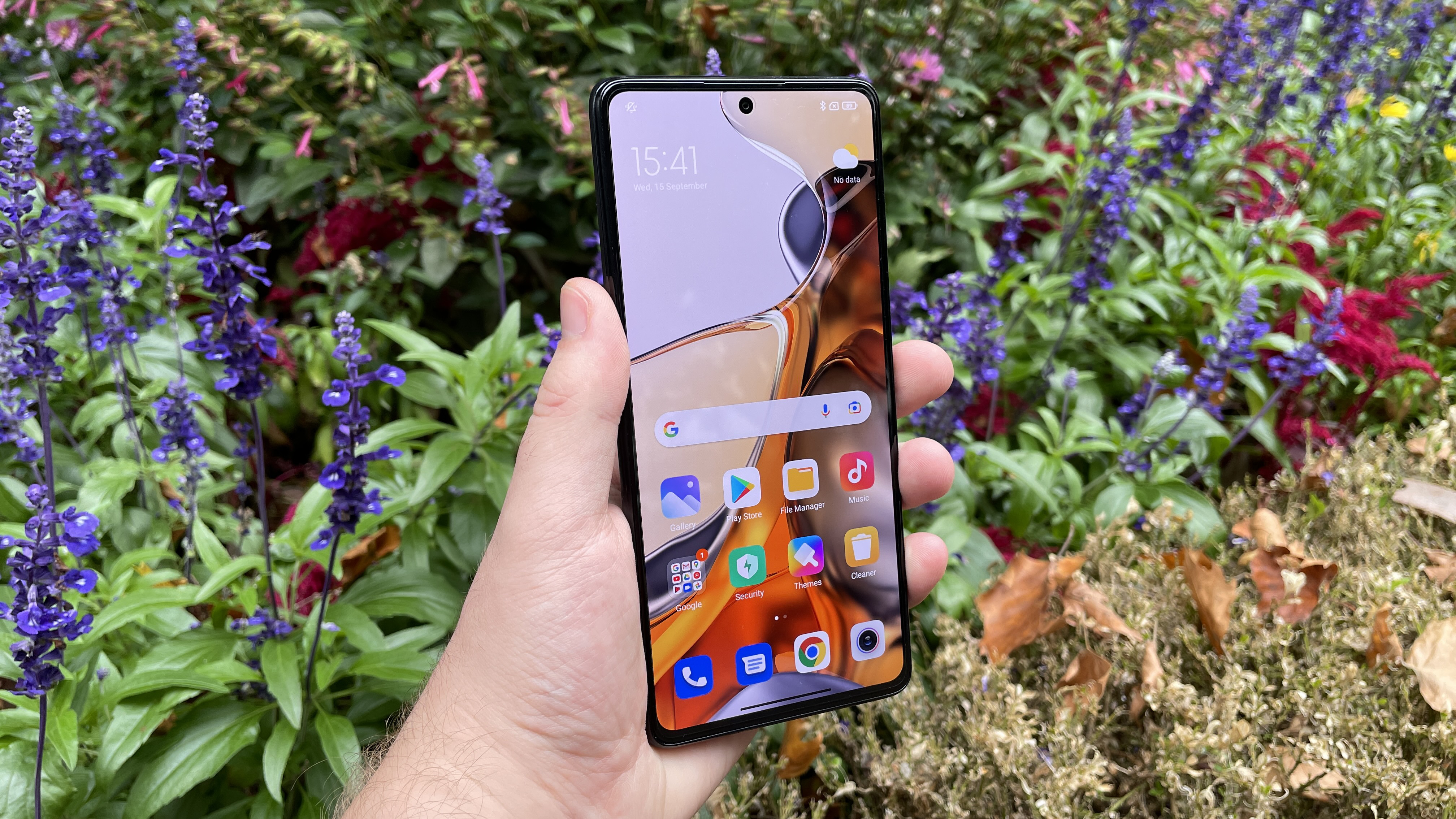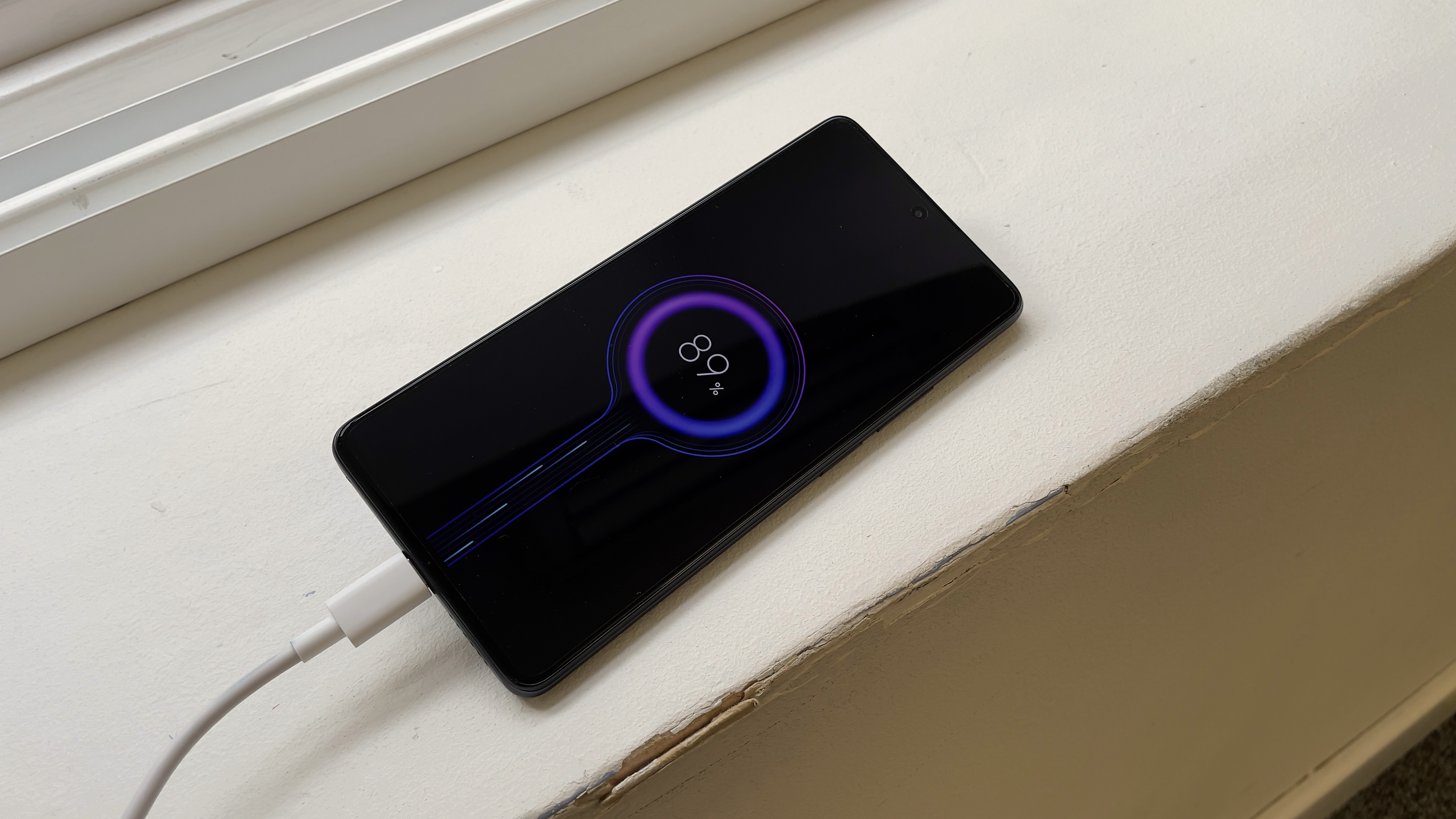The Xiaomi 11T Pro is fastest charging phone we've ever tested — this is ridiculous
Xiaomi has equipped the 11T Pro with 120W charging — here's how fast it goes

The Xiaomi 11T series was just announced today, and it's almost a completely different phone to the Xiaomi Mi 11 that arrived earlier this year. But for the moment we're going to put almost all the phone's features to the side to concentrate on its absurdly powerful charging.
Xiaomi's fitted a 120W charging system to the Xiaomi 11T Pro. It's not Xiaomi's first 120W phone, as the Xiaomi Mi 10 Ultra uses the same standard, but that was only sold in China. The wait's been worth it though, as the the 11T Pro will now top our list of the fastest charging phones.
- The are the best Android phones
- iPhone 13 release date, specs, price and latest news
- Plus: Google Pixel 6 Pro key features reportedly leaked
Xiaomi has its own figures for how fast the 11T Pro charges, but of course we had to try out this supposedly lightning-fast speed ourselves. After draining the phone's battery (using a combination of YouTube and Civ VI), I plugged the phone in and started a stopwatch.

In ten minutes, the 11T was at 43% full, with 50% coming at around 11 minutes and 30 seconds. It was dead-on 23 minutes when the phone chimed, announcing it was 100% full. The phone was definitely warm to the touch after, but not uncomfortable to hold.
Twenty-three minutes to completely fill a phone is unprecedented in production phones. Currently the fastest charging phone we've tested is the OnePlus 9 Pro. It uses a 65W charging system with a 4,500 mAh battery, and was capable of charging to 61% in 15 minutes and to 99% in 30 minutes.
The Xiaomi 11T Pro therefore is almost a third faster than the OnePlus 9 Pro, but that's only looking at percentage capacity. The Xiaomi has a larger 5,000 mAh battery capacity than the OnePlus' 4,500 mAh, so that faster charge should in theory last you longer, although we've not tested how long the 11T Pro's battery lasts yet.

The comparison gets worse with the latest phones from Samsung and Apple. Samsung's Galaxy S21 series charges at a maximum of 25W, which fills the phone to approximately 50% in half an hour. The iPhone 12 also manages a 50% charge in 30 minutes, but with 20W wired charging. However, neither of these phones include chargers in their box, so you can't even achieve these speeds by default.
Get instant access to breaking news, the hottest reviews, great deals and helpful tips.
Unfortunately, our test results were a bit slower than Xiaomi's figures. Xiaomi says the 11T Pro can be charged to full in just 17 minutes. I'd put this difference down to Xiaomi probably testing the phone under strict lab conditions conducive to fast charging.
If you're worried about what this extreme number of watts will do to the battery's lifespan, then Xiaomi says you shouldn't. It claims that the battery will retain up to 80% of its original capacity after 500 charging cycles. That means, assuming you drain the phone each day, you'll have used the phone for about a year and two-thirds before you start to notice a meaningful change in the battery life.
Xiaomi 11T and 11T Pro: what else is new?
Beyond this rapid charging, the two new Xiaomi 11T models are far different from the Xiaomi Mi 11 we saw launch in the U.K. at the start of the year.
The 11T and 11T Pro use identical flat 6.67-inch AMOLED displays featuring 120Hz adaptive refresh rates. They also share the same camera system, consisting of a 108MP main sensor, an 8MP ultrawide camera, a 5MP telemacro camera, plus a 16MP selfie camera on the front. The batteries in both phones are the same 5,000 mAh, but the base 11T uses a slower, but still rapid, 67W wired charger.
The major difference between the two, other than charging speed, is the chipset. While there's a Snapdragon 888 inside the 11T Pro, the 11T uses a Dimensity 1200-Ultra. Both phones have 8GB RAM and 128GB/256GB storage options, but there's also a 12GB/256GB option for the 11T Pro.
We've got the 11T Pro on our desk for a full review in the near future. However for now, it's safe to say that this 120W charging system smashes expectations of phone charging speeds.

Richard is based in London, covering news, reviews and how-tos for phones, tablets, gaming, and whatever else people need advice on. Following on from his MA in Magazine Journalism at the University of Sheffield, he's also written for WIRED U.K., The Register and Creative Bloq. When not at work, he's likely thinking about how to brew the perfect cup of specialty coffee.
